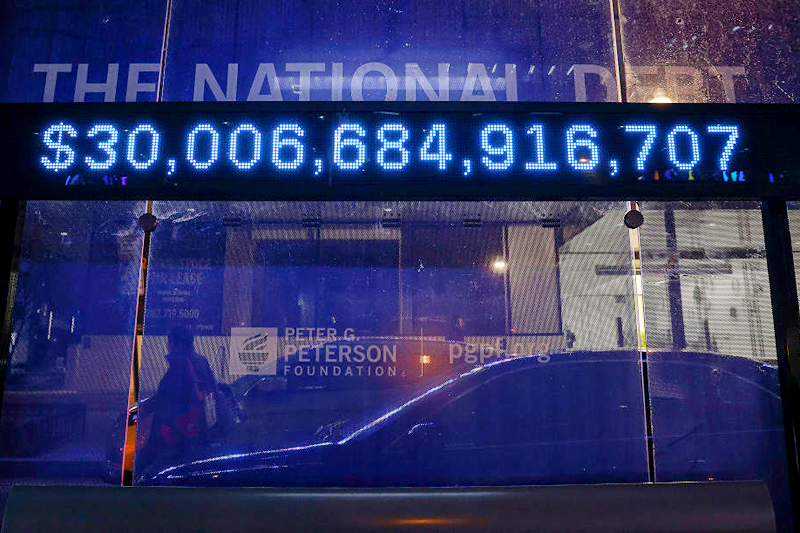Debt Limit Will Be Reached, And Democrats Want More!

By OAN Shannon Kelland - 12:42 PM PT – Friday, January 13, 2023
Treasury Secretary, Janet Yellen notified Congress that the U.S. will reach its statutory debt limit next Thursday.
Yellen asked House Speaker Kevin McCarthy (R-Calif.) to suspend or increase the debt limit to be able to implement “extraordinary measures” to avoid default.
Treasury first used these measures in 1985 and they have been used approximately 16 times since. The extraordinary measures work as a band-aid to the true issue, and would probably run out, then putting the U.S. at risk of defaulting.
Treasury Secretary told McCarthy, that cash and these measures would be exhausted before June.
She urged Congress to act quickly to protect the credit of the United States. Yellen’s letter effectively starts a ticking clock of how long the federal government can continue to make interest payments on its debt.
“Failure to meet the government’s obligations would cause irreparable harm to the U.S. economy, the livelihoods of all Americans, and global financial stability,” Yellen warned.
Actions would relieve some payments, such as contributions to federal employees’ retirement plans. This would allow other payments to be made that are deemed essential, including Social Security and debt instruments.
In December 2021 the federal debt limit was increased to about $31.4 trillion by congress.
The debt limit is the total amount of money the U.S. government is legally allowed to borrow to pay for its existing obligations.
Our existing obligations being “Social Security and Medicare benefits, military salaries, interest on the national debt, tax refunds, and other payments,” Yellen wrote.
An increase in the borrowing limit could take weeks or months while Congress puts together a bill.
A White House official of the Biden administration announced plans to negotiate with Congress after the mid-April tax deadline. At that point, the federal government will have a better idea of how much revenue is coming in, determining how far the amount will go and how pressing it will be to reach a deal.
The debate over raising the debt ceiling will almost certainly result in a political gridlock between GOP lawmakers who control the House and President Joe Biden and his fellow Democrats, who had previously enjoyed one-party control in Washington for the past two years.
Senator Mitch McConnell (R-Ky.), the minority leader of the Senate, has a track record of rejecting demands to increase the debt ceiling unless fiscally conservative policies are also implemented. The fiscally conservative policy that Republicans intend to demand om exchange for approval is massive spending cuts to the federal budget.
“We’re going to look at every single dollar spent,” McConnell said.
The new House Majority Leader, Republican Steve Scalise (R-La.), spoke on Capitol Hill and compared the U.S. borrowing limit to a household credit card.
“At the same time, you’re dealing with the debt limit, you’re also putting mechanisms in place so that you don’t keep maxing it out, because if the limit gets raised, you don’t go to the store the next day and just max it out again. You start figuring out how to control the spending problem. And this has been going on for way too long. And we’re going to confront this,” he said.
The research firm Moody’s Analytics warned in a September 2021 report that a default on Treasury bonds could put the U.S. economy into a spiral as bad as the Great Recession.
Yellen also emphasized that an increase in the debt limit does not authorize new spending or cost taxpayer money, but will allow the government to finance existing legal obligations. An action that Congresses and Presidents of both parties have made in the past.

